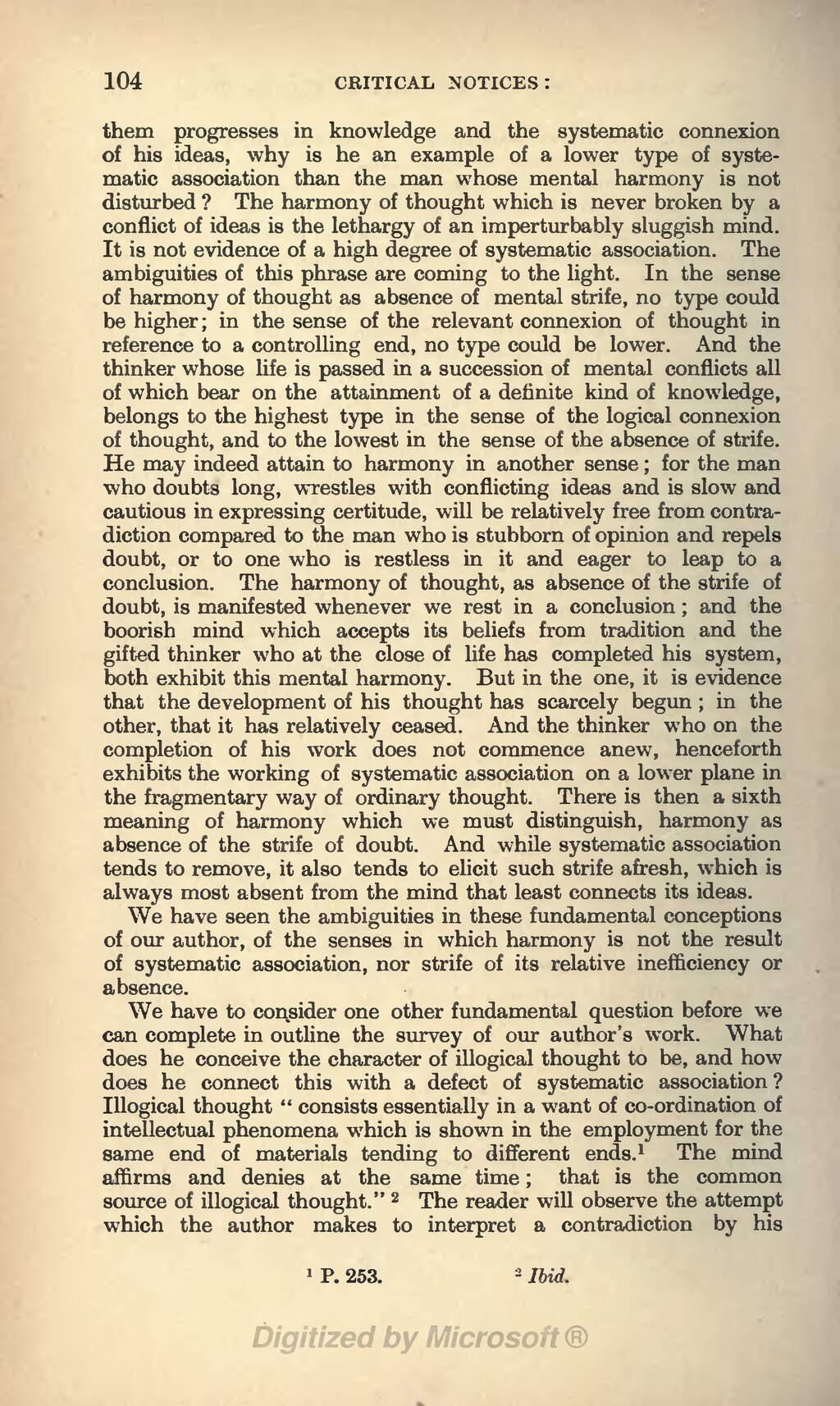104 CRITICAL NOTICES : them progresses in knowledge and the systematic connexion of his ideas, why is he an example of a lower type of syste- matic association than the man whose mental harmony is not disturbed ? The harmony of thought which is never broken by a conflict of ideas is the lethargy of an imperturbably sluggish mind. It is not evidence of a high degree of systematic association. The ambiguities of this phrase are coming to the light. In the sense of harmony of thought as absence of mental strife, no type could be higher; in the sense of the relevant connexion of thought in reference to a controlling end, no type could be lower. And the thinker whose life is passed in a succession of mental conflicts all of which bear on the attainment of a definite kind of knowledge, belongs to the highest type in the sense of the logical connexion of thought, and to the lowest in the sense of the absence of strife. He may indeed attain to harmony in another sense ; for the man who doubts long, wrestles with conflicting ideas and is slow and cautious in expressing certitude, will be relatively free from contra- diction compared to the man who is stubborn of opinion and repels doubt, or to one who is restless in it and eager to leap to a conclusion. The harmony of thought, as absence of the strife of doubt, is manifested whenever we rest in a conclusion ; and the boorish mind which accepts its beliefs from tradition and the gifted thinker who at the close of life has completed his system, both exhibit this mental harmony. But in the one, it is evidence that the development of his thought has scarcely begun ; in the other, that it has relatively ceased. And the thinker w r ho on the completion of his work does not commence anew, henceforth exhibits the working of systematic association on a lower plane in the fragmentary way of ordinary thought. There is then a sixth meaning of harmony which we must distinguish, harmony as absence of the strife of doubt. And while systematic association tends to remove, it also tends to elicit such strife afresh, which is always most absent from the mind that least connects its ideas. We have seen the ambiguities in these fundamental conceptions of our author, of the senses in which harmony is not the result of systematic association, nor strife of its relative inefficiency or absence. We have to consider one other fundamental question before we can complete in outline the survey of our author's work. What does he conceive the character of illogical thought to be, and how does he connect this with a defect of systematic association ? Illogical thought " consists essentially in a want of co-ordination of intellectual phenomena which is shown in the employment for the same end of materials tending to different ends. 1 The mind affirms and denies at the same time ; that is the common source of illogical thought." 2 The reader will observe the attempt which the author makes to interpret a contradiction by his 1 P. 253. 2 Ibid.
